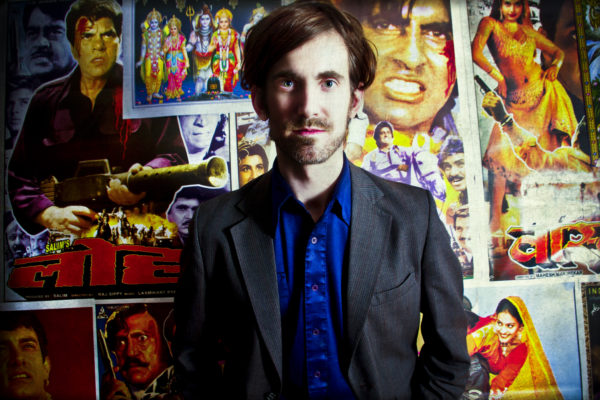 Supe Troop’s Laura Katz talked to composer Daniel Hart about film scoring and the recently released film The Old Man & The Gun, on which they both worked.
Supe Troop’s Laura Katz talked to composer Daniel Hart about film scoring and the recently released film The Old Man & The Gun, on which they both worked.
Supe Troop (ST): Is there a particular score or individual composer’s work that inspired you to be a film composer?
Daniel Hart (DH): Well, I wasn’t planning on becoming a film composer, and I feel like I didn’t really start paying attention to film scores until I actually did start scoring films. But the film scores from my childhood that really stuck out were Pee-Wee’s Big Adventure, The Last Of The Mohicans, and The Princess Bride. And the first film score I remember buying–excluding song-centric soundtracks like Singles–was a two-for-one CD that had Carter Burwell’s Blood Simple and Raising Arizona on it. Once I started paying attention, my favorite film score was Bill Lee’s Do The Right Thing, and the score that really blew me away when I first started scoring films was The Master.
ST: What is your scoring process?
DH: Lately, I’ve been lucky enough to watch the film first without any music in it, which allows my mind to find the music as I’m watching and listening. Ideas start popping into my head, and, for me, that is the best way to start. If I come into the process earlier than that, sometimes I’ll make demos of possible themes based on the script, but those usually don’t end up feeling right once I actually see the film itself. The film usually tells me everything I need to know about what kind of music it needs. Once I watch it and listen to what’s stirring in my head, I’ll try to get that out into the world via violin, piano, percussion, guitar, voice, synths…whatever instrument feels like it’s getting me there the fastest. I’ll start recording right away if possible, so that I can listen back to the ideas while watching the film again, and then refine that idea until it fits with the images on screen and all the other sounds within that world.
ST: What do you look for when you’re spotting a film?
DH: Pacing, the rhythm of the dialogue, the movement of the camera, the quality of the light, the actor’s eyes, the look of the set, the character arcs, the sound design (if some has already been done)…I’m looking for clues I can utilize to solve the mystery of what music would best serve the scene and the film as a whole. I’m usually spotting the film with some combination of the director, the producers, the writers, the editors, and, in TV, the show runners, so I’m also looking for what it is that they want musically for their project. I am, after all, trying to serve someone else’s vision and help tell their story to the best of my ability.
ST: We both got to work on The Old Man & The Gun! Is there one cue or one scene from that film that you really enjoyed creating?
DH: We sure did! The Old Man & The Gun is the most fun I’ve ever had scoring a film, so I find myself wanting to name almost every scene. When I figured out what needed to happen musically for the scene in which (spoiler) Robert Redford and Sissy Spacek kiss, I was very happy with my original idea (which is in the film) and really enjoyed bringing it to life. The big car chase flashback was probably the toughest scene to score, and I missed the mark with my first version. To that end, when I did find the right music for that scene and we started recording and assembling all the different parts for it–jazz piano trio, string section, saxes–I felt like I’d just won a marathon.
ST: What’s an example of where you think another composer nailed a project or a particular scene?
DH: Mica Levi’s score for Under The Skin (not telling you anything you don’t already know) absolutely kills from start to finish. I was really impressed with Christophe Beck’s score for Edge Of Tomorrow, because it’s so incredibly understated for a huge science fiction film. The opening piece Michael Abels wrote for Get Out, which is called “Sikiliza Kwa Wahenga,” tells me everything I need to know about what kind of movie I’m about to watch. Absolutely nailed it.
ST: What work are you proudest of (film score or otherwise)?
DH: The score for A Ghost Story. The songs “Keep It Inside” and “I Get Overwhelmed” by my band Dark Rooms. An operatic chamber piece I wrote for Fox’s The Exorcist called “Ha Ate Am Anane.”
ST: What music are you listening to now?
DH: Stravinsky’s The Rite Of Spring, a band called EMEFE, “Garvey’s Ghost” by Max Roach, Moses Sumney’s Aromanticism, Vulfpeck. I just saw Dirty Projectors play at Zebulon last week, and that show is still in my mind.
ST: What is your favorite soup?
DH: Lentil
ST: Thanks, Daniel! What fun answers. It’s just about soup season!